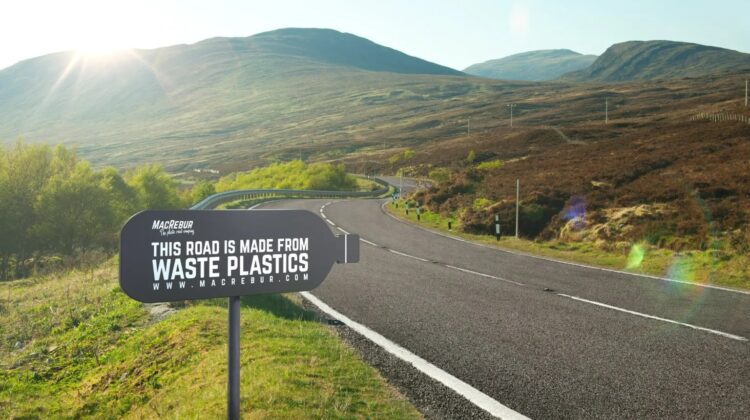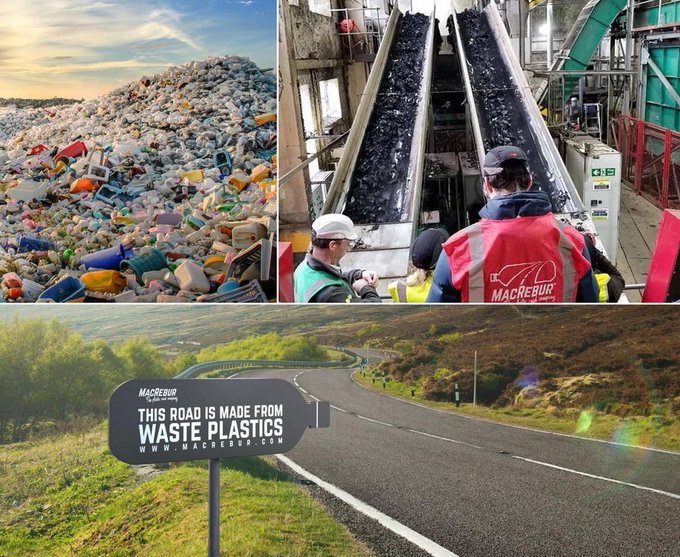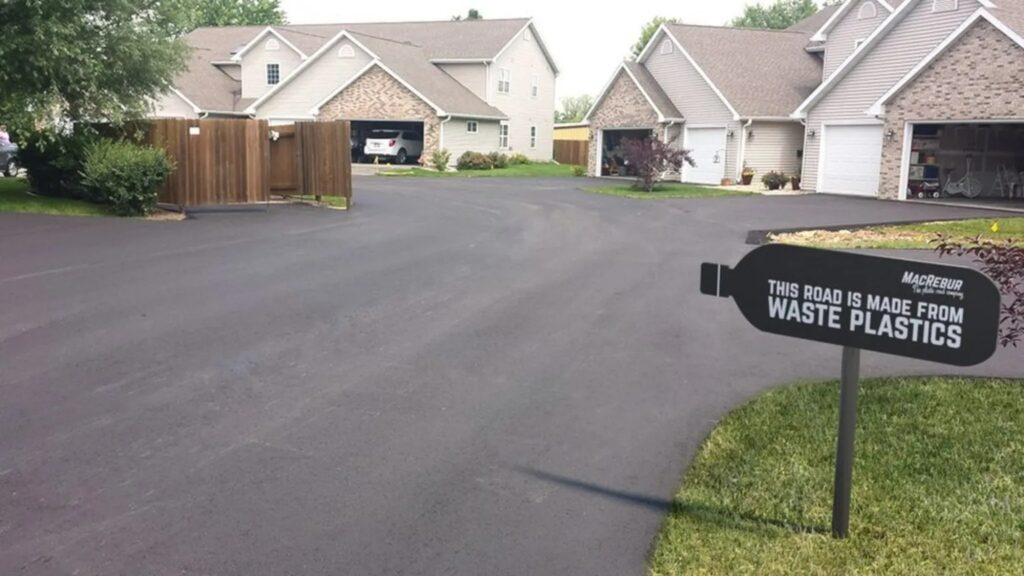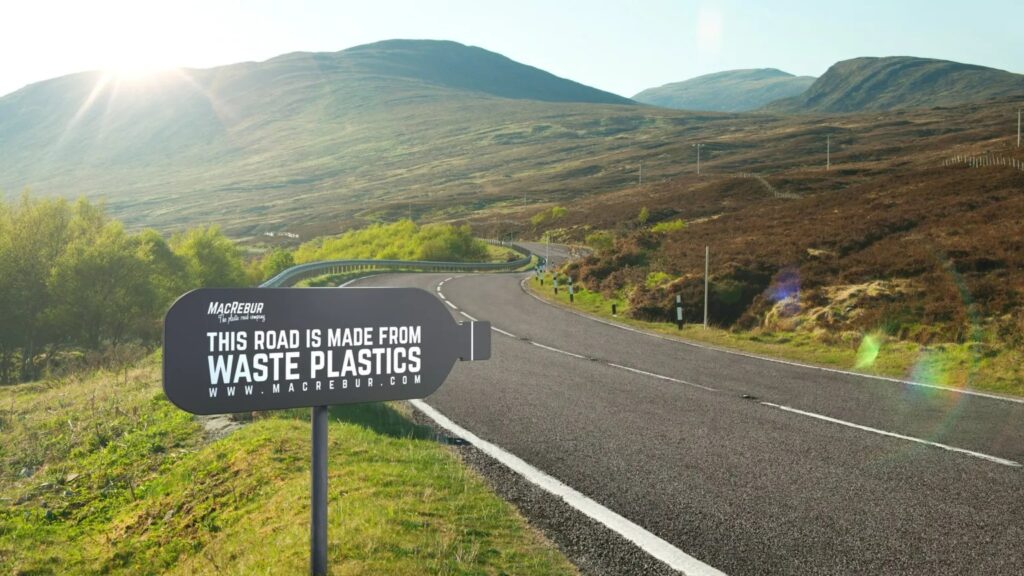
The world faces a double challenge: the ever-growing problem of plastic waste and the constant need to maintain and rebuild crumbling roads. But a Scottish company, MacRebur, has developed a solution that tackles both issues at once.

MacRebur creates pellets out of recycled plastic waste and lays roads that are 60% stronger and expected to last about ten times longer than asphalt roads. This innovative approach not only reduces plastic pollution but also leads to significant cost savings in road construction and maintenance.

The process is ingenious. MacRebur transforms recycled plastic into small, usable pellets called MR6. These pellets then replace a portion of the bitumen, the traditional oil-based binder used in asphalt. The MR6 pellets act as a superior binding agent, creating a sturdier and more durable road surface.

The environmental benefits are substantial. A single kilometer of road built with MacRebur’s method utilizes the equivalent of about 684,000 plastic bottles or 1.8 million plastic bags. This translates to a significant reduction in plastic waste that would otherwise end up in landfills or pollute our oceans.

MacRebur’s plastic roads offer a glimpse into a more sustainable future for our transportation infrastructure. By utilizing recycled materials and creating longer-lasting roads, this technology has the potential to revolutionize the way we build and maintain our roadways while addressing the growing plastic pollution crisis.

Leave a Reply